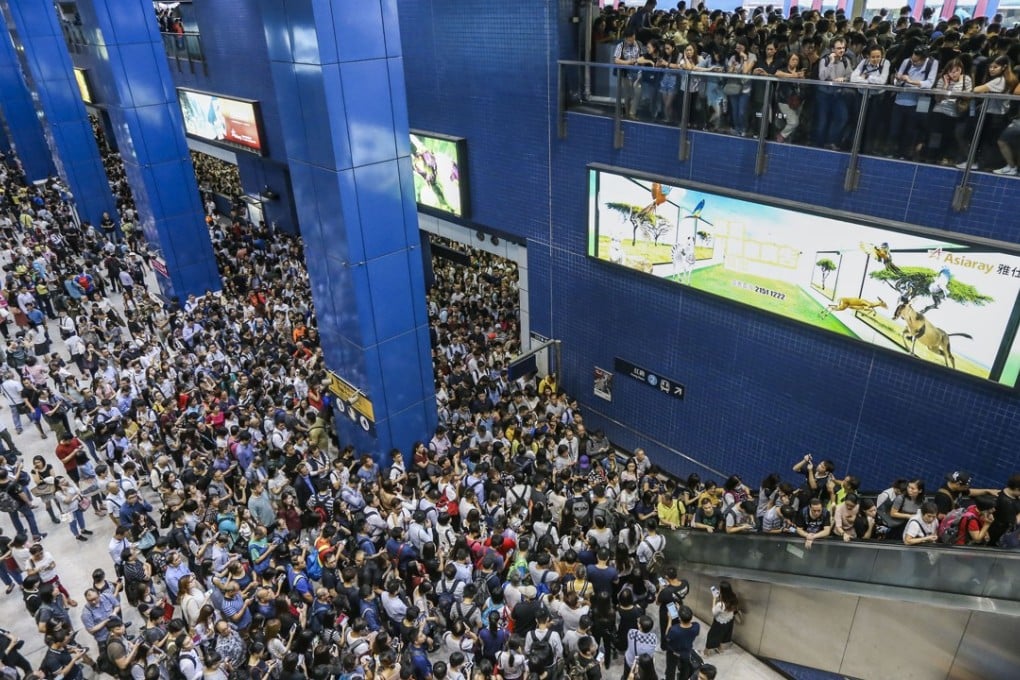Hong Kong to review post-storm work and travel arrangements after Typhoon Mangkhut chaos
Not responsible to declare public holiday without assessing impact on all sectors, chief executive says

Hong Kong’s leader has ordered a review of how the government should handle work and travel arrangements after being criticised for underestimating the chaotic start to the week due to widespread damage caused by the most intense typhoon on record.
She found herself on the defensive after commuters were left confused and angry trying to reach work amid large-scale suspensions of rail and bus services caused by Mangkhut.
Lee said the review, involving various departments and organisations, would start with a cross-bureau meeting next month looking into areas such as the administration’s contingency plans for natural disasters and post-storm management.
He admitted Monday’s chaos had been “undesirable”.
“We came across a traffic issue this time … The city experienced a peak hour shortly after the storm signal was cancelled,” Lee said. “We will look into ways to address that and come up with different proposals … to prevent the situation happening again.”